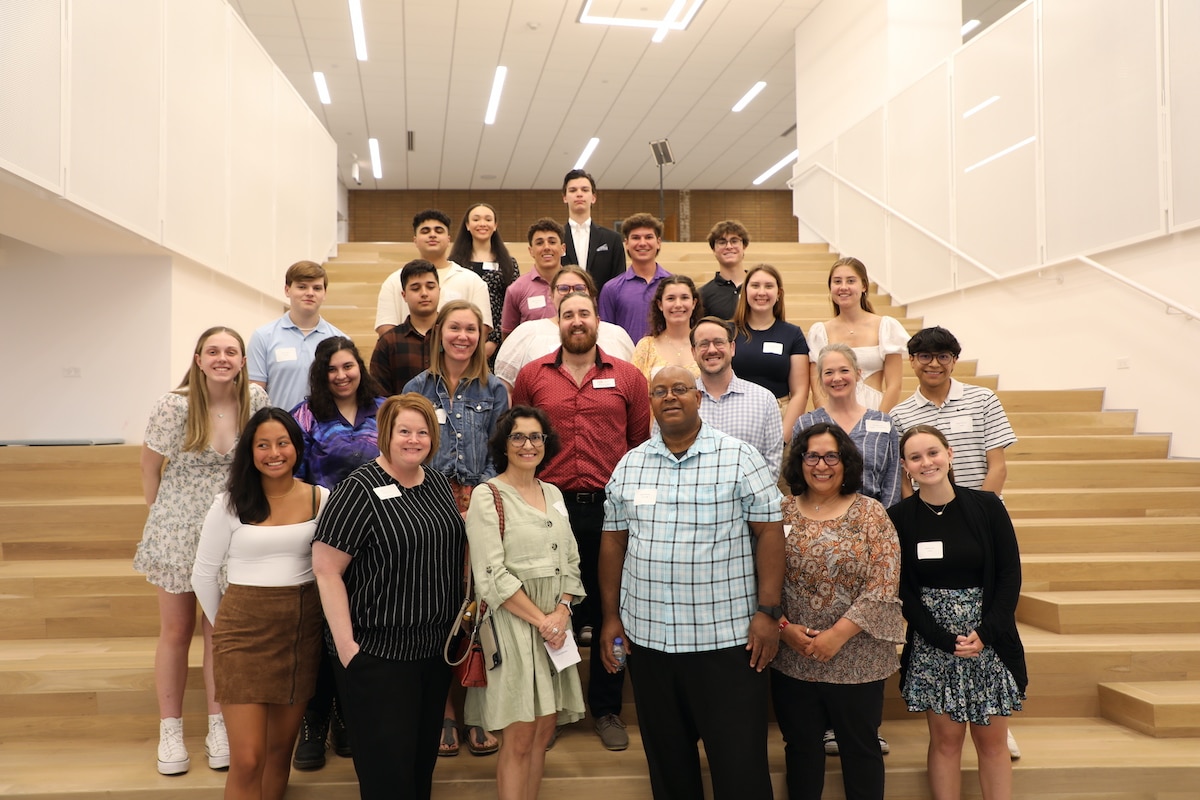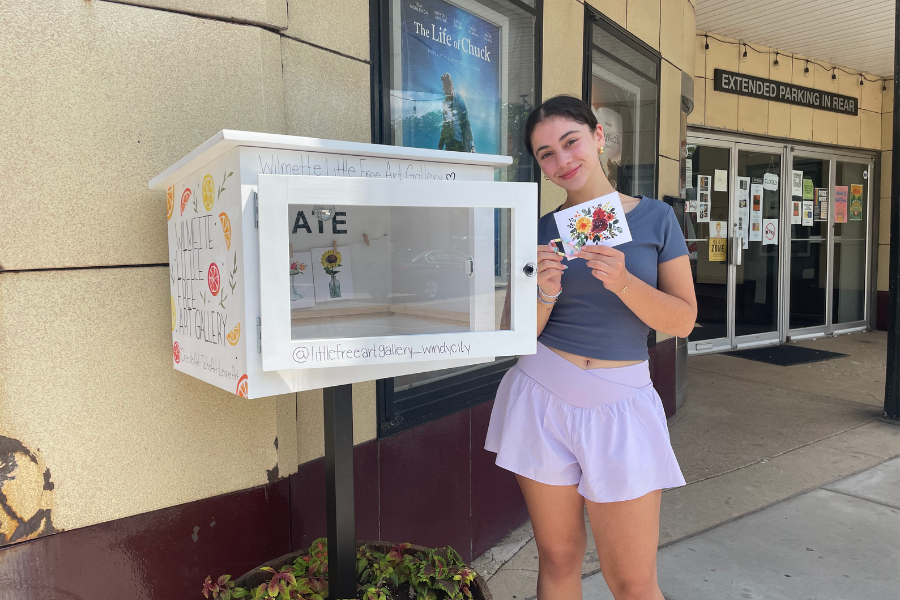
Local youth board helps philanthropic dollars go further
Loyola, Regina, NSCD students among members of fundraising board
A new effort by juniors and seniors from North Shore high schools allows students to learn how not-for-profit organizations work by putting them in charge of where donors’ dollars are spent. And the program requires the students to raise the money, too.
The Youth Philanthropy Board, an affiliate of the nonprofit Three Pillars Initiative out of Oak Park, came to life in the summer of 2022, when Three Pillars contacted area high schools with the idea.
“All the schools were enthusiastic,” said Terri Guercio, of Loyola Academy, the group’s senior program coordinator.
Three Pillars, founded by president Rick King in 2010, provides a model and curriculum for the philanthropy boards, as well as logistical support. It has set up philanthropy boards at high schools nationwide. The intent, said Remington Sheehan, senior program officer with Three Pillars, is for the boards to be student-led. The boards have adult coordinators and mentors, but decisions are made by youth in the program.
The board requires students to make a two-year commitment. In their junior year, they decide which of the many local nonprofits they would like to provide with a $2,500 grant. In total, the first cohort had $10,000, raised privately, to award. The students put out a request for proposals to a wide range of groups. When ideas came in from the nonprofits for ways they would spend the money, the board broke into teams of students from different schools. Each team made a site visit to a nonprofit to learn how it worked and its goals for the funds.
Kate Henry, a senior at Winnetka’s North Shore Country Day, said that the site visits were a great point of contact and helped build a relationship with the nonprofits.
“We saw the programs they were offering, we talked to people in the programs. We heard real stories from real people,” Henry said.
Then the teams presented their findings to each other, and the whole board hashed out which nonprofits would receive the grants without advice from adults. This meeting, said senior James Sohigian, of Loyola Academy, was “pretty intense.” Groups came in favoring the nonprofit they had visited, but “the goal was to reach consensus, and we did that. This was not a majority vote. We wanted to be all in,” he said.
In the end, he added, it was important to the board that it choose nonprofits with which it could continue a relationship into the future.
“It was amazing,” Guerico said of the board’s decision process.
The students focused on organizations that would serve students their age. They brought a youth perspective to how dollars would be spent, which is very much a part of Three Pillars’ intent, Sheehan noted.
“The boards benefit communities because they give youth a voice,” Sheehan said. “This is a way to incorporate student voices, and it’s interesting to see how that grows” over time. “And the students are good at it!” he added. “It’s often surprising to see how worthwhile their opinions and decisions are.”
The Three Pillars model, he noted, differs from many other service clubs that students can join.
“This gives them resources and a choice. It’s empowering,” he said. “It’s also more of a commitment. It is a grant making cycle and a fundraising round. Students lead it.”
Emma Bevenour, a senior at Regina Dominican High School, said the board is “different from anything I’ve done.” She and other board members have long been involved in service clubs and activities, “but this goes beyond service,” she said. “We learned about the organizations’ processes, how they use the money they receive, and how they can benefit from it.” Also, “once we handed out the grants we developed a relationship with the organizations.”
These partnerships have moved into the next year, with the teens volunteering with the nonprofits and marketing their events on social media.
Students go through an application and interview process to be selected for the board. Guercio said that she and Jennifer Herrington, a program mentor who formerly worked at Regina Dominican High School, reach out to teachers and counselors at the different high schools, asking them to talk about the program with students they believe would be a good match. This rigor contrasts with clubs that students choose to join. Guercio thinks it results in a wider mix of students with differing experience.
As seniors, board members must raise the money that the next year’s juniors will dole out to selected nonprofits. They learn how to write an appeal letter, figure out where the letters will be sent. They organize and run an event, which this year will be a dine and donate at Pizza by Sal’s from March 17-21.
The students will also seek grants and interact with potential donors.
“The seniors have to get comfortable asking for money,” Herrington said. “It’s a life skill. They have to ask others to join them in funding this work.”
The seniors have also created an Instagram account: (at)youthphilanthropyboard.
Asked whether involvement in the board has changed how they think about philanthropy, all the students said yes. Henry noted that before joining, “I had a preconceived notion that only successful business people could do it.” Not true, she thinks now. “Anyone can do philanthropy with a group.”
For Henry, the experience also made her even more excited about studying business in college because she has seen the business side of philanthropy.
Sohigian said he will continue with philanthropy going forward, in part because he has learned that it isn’t only about donating money.
“It’s all about creating an environment where two parties can work to create change in the future,” he said.
Donors, Herrington said, have told her that they feel their money is amplified by flowing through the board on its way to a nonprofit. The funds’ impact is increased because it gives students real-world experience of how the not-for-profit sector operates, then moves entirely into the community. That point, she noted, “is in the appeal letter.”
The Record is a nonprofit, nonpartisan community newsroom that relies on reader support to fuel its independent local journalism.
Become a member of The Record to fund responsible news coverage for your community.
Already a member? You can make a tax-deductible donation at any time.


